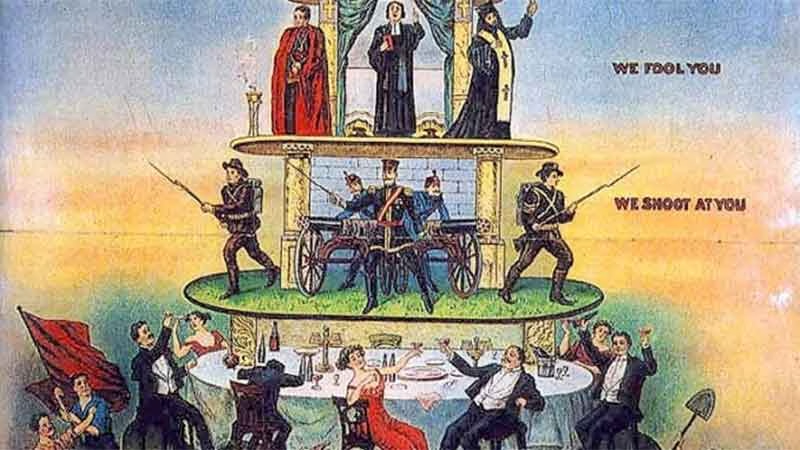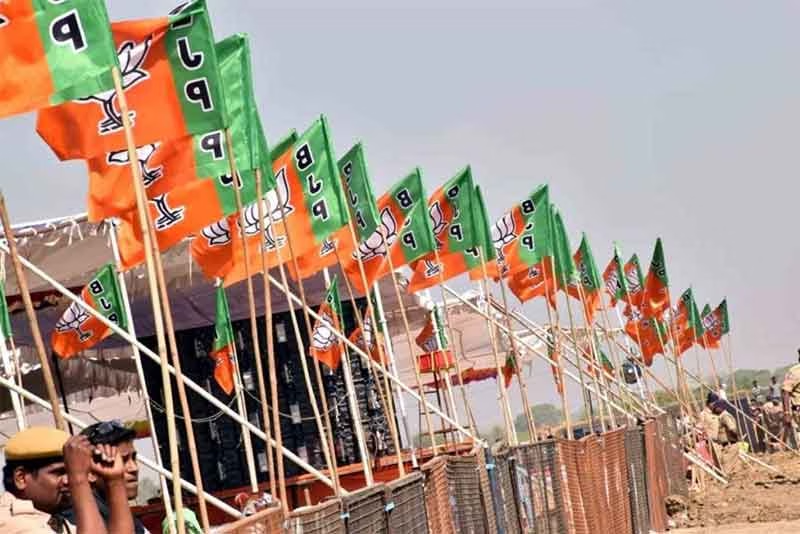
The political and economic campaigns such as ‘America First’ by President Donald Trump, ‘India First’ by Prime Minister Narendra Modi, and ‘Britain First’—a far-right political group founded in 2011 by former members of the British National Party—illustrate a renewed emphasis on reactionary nationalism in the name of loving your country. Patriotism has become a new tool in political discourse, used to mobilize and manipulate the masses during elections. It serves to capture state power and to domesticate the public within a narrowly constructed identity—one shaped by reactionary agendas aligned with the requirements of capitalism.
The slogan “America First” was originally used by the America First Committee (AFC), one of the largest anti-war groups in U.S. history, composed of people from various walks of life. The committee was established to oppose American involvement in the Second World War, a stance that shifted following Japan’s attack on Pearl Harbor. Over time, the slogan was appropriated by reactionary political forces in the United States. It has since been used by several U.S. presidents—including Woodrow Wilson, Warren G. Harding, George H. W. Bush, and Donald Trump—as a tool for political mobilisation. Economically, “America First” evolved into a policy framework known as the America First Investment Policy, shaped by the America First Policy Institute (AFPI), a think tank closely aligned with American corporate interests.
Similarly, Britain First was founded by Scottish Christian fundamentalist Mr Jim Dowson, a former member of the British National Party (BNP). This far-right, fascist, and white supremacist group stands fundamentally opposed to the idea of a multicultural Britain. It has no genuine connection to the interests of the British working class. Instead, it seeks to mobilise working people against one another, ultimately serving the interests of both the ruling and non-ruling elites. Such divisive politics help sustain elite hegemony over the working people and their productive capacities.
The 1942 Quit India Movement played a pivotal role in shaping and accelerating the idea of an independent “India First.” The movement was led by Indian nationalists and freedom fighters under the umbrella of the Indian National Congress, the movement demanded full independence for India before offering support to the Allied powers in their fight against the Nazi regime. In this way, Indians were simultaneously resisting colonial rule and opposing Nazism and fascism, all while prioritising India’s own national interests. Indian freedom struggle was based on ideals of progressive democracy, internationalism and peace. The anti-colonial, anti-imperialist and anti-capitalist political legacy of Indian freedom struggle shaped inclusive ‘India First’ politics after independence. Hindutva politics was far from anti colonial struggles that shaped the politics of ‘India First’. However, the notion of “India First” was later appropriated by the Hindutva political agenda, particularly under the leadership of Prime Minister Narendra Modi. Today, Indian corporate interests also promote the “India First” slogan as a means to capture and exploit natural resources in the country. In its current form, the discourse around “India First” no longer reflects the true interests of the Indian masses.
Across the world, numerous fascist and neo-fascist movements are shaping political discourse under the guise of patriotism. These reactionary groups use the politics of “othering” as a strategic tool to capture state power and serve the interests of capitalist classes at local, regional, national, and international levels. In the name of patriotism, such political forces condition citizens into narrow paths of domestication for obedience, where individual liberty gradually withers away. Therefore, for those who truly value their country, freedom, and individual rights, it is essential to reject reactionary politics in all its forms. Upholding citizenship rights and individual freedoms requires a deep commitment to strengthening progressive, egalitarian democracy.
Patriotism is not blind obedience to a flag, nor is it uncritical loyalty to an imagined or abstract notion of territorialised geography. Patriotism that confines people within narrow boundaries of dominant politics is not true patriotism—it is a path towards collective ruin. Capitalist forces promote reactionary politics to divide the working masses and undermine the processes and principles of democracy and secularism, all to maintain their dominance over the people. Therefore, loving one’s own country means resisting all forms of dominance, power and narratives of ruling and non-ruling elites.
True patriotism does not marginalise working people- it unites and connects with each other based on shared values of liberty, equality, justice, fraternity and solidarity. It rejects all forms of power that exploits people and promotes hate to build collective hope for a better future without wars in the name of reactionary nationalism. Patriotism cares for inclusive values that cares for people and committed to the principles of democracy and secularism. True patriotism means resisting all forms of hegemonic power—whether from ruling or non-ruling elites—in defence of the working people and their country. To love your country means to question its power hungry rulers.
Subscribe to Our Newsletter
Get the latest CounterCurrents updates delivered straight to your inbox.
There is no genuine agenda of empowerment for working people in political slogans like America First, India First, Britain First, or other forms of reactionary nationalist propaganda. These are corporate-driven agendas, cloaked in patriotic rhetoric, designed to manipulate the masses by aligning corporate interests with the idea of the nation. In this context, only a united and inclusive working-class struggle can effectively resist such forces and pave the way for a truly democratic, secular, and scientific society—one that serves all people, free from all forms of discrimination, inequality, and exploitation. Peace and prosperity for all depend on a collective struggle for emancipation from all forms of reactionary forces—shifting the focus from country first to people first.
Bhabani Shankar Nayak is a political commentator















































